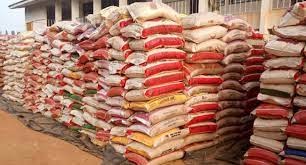As part of efforts to ensure that the productivity of smallholder farmers is enhanced to enable them to perform optimally in their role of feeding the nation with their produce, Small Scale Women’s Farmers Organisation in Nigeria (SWOFON) has asked the government for palliatives in the form of agricultural produce, adding that smallholder farmers are the source of feeding the nation as large-scale farmers only export and distribute to corporate organizations.
Small-scale women farmers in Kwara made this call while rejecting the rice palliative given to cushion the pains of fuel subsidy removal, adding that what the government should do is make available parcels of land and farm inputs for their agricultural practice to enhance food production in the state.
The women farmers made the call in Ilorin during a stakeholders’ consultative meeting put together by the Centre for Community Empowerment and Poverty Eradication (CCEPE) and its partner organizations under the Scaling Up of Public Investment in Agriculture (SUPIA) Project Budget, on the 2024 agriculture sector budget.
The state coordinator of SWOFON, Mrs. Oluwatoyin Abosede Anifowose, noted that the rice and beans palliative were temporary but the availability of land and supply of farm implements by the government would assist women farmers in increasing agricultural produce and go a long way in reducing food insufficiency and scarcity in the state.
She complained that the group is not given due recognition by the state government and asked that the government should provide training and retraining programs, as well as agriculture input for women farmers as they are key to the development of the state and the nation as a whole.
“We don’t want to use crude farm implements like hoes and cutlasses again. The government should assist women farmers across the 16 local governments of the state with gender-friendly machines like planters and tractors. If we have all these implements there will be boost in agricultural produce from our farmers. We don’t want to be given rice as palliative to mitigate the effects of fuel subsidy removal; we want acres of land from the government apart from the farm inputs,” she said.
The women farmers at the end of the program issued a communiqué that asked the state government to prioritize increased budgetary allocation to the agricultural sector to ensure increased food production and reduce hunger and poverty, ensure transparency and accountability, all agricultural-related budget activities should be housed in the Ministry of Agriculture and Rural Development and provide an adequate budget to support organic farming, e.g., provision of eco-friendly inputs, in order to adapt the state agricultural system to eco-friendly practices and operations.
“We seek the inclusion of farmers with disabilities in the state’s agriculture budget planning and processes. Handholding farmers (women, youths, and farmers living with disability cooperatives) to access existing CBN agricultural credit facilities through a team or consultancy firm that prepares their business proposals, interfaces, and negotiates with BOA, Bank of Industry, NIRSAL, commercial and microfinance banks
“We seek the inclusion of Agriculture CSOs and women farmers in the Agriculture budget planning and processes of the state and recommend continuous training for women farmers on modern farming tools and best agricultural practices so as to increase productivity and enhance the agriculture value chain.
“We recommend that the government should outline various programmes targeted at youth empowerment/employment in Agriculture and make vibrant budgetary allocation.
“The State Government should partner with relevant stakeholders such as the National Centre for Agricultural Mechanization (NCAM) for fabrication/production/purchase of hand-held tools for Smallholder women farmers.
“Agriculture interventions and support to farmers should not be politicized and we call on the State Government to prioritize the agriculture sector and its programs, especially at this critical time of food insecurity and economic situation in the state,” the farmers demanded.









